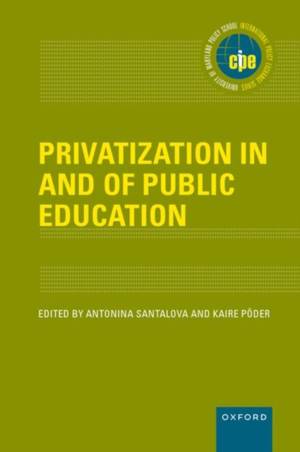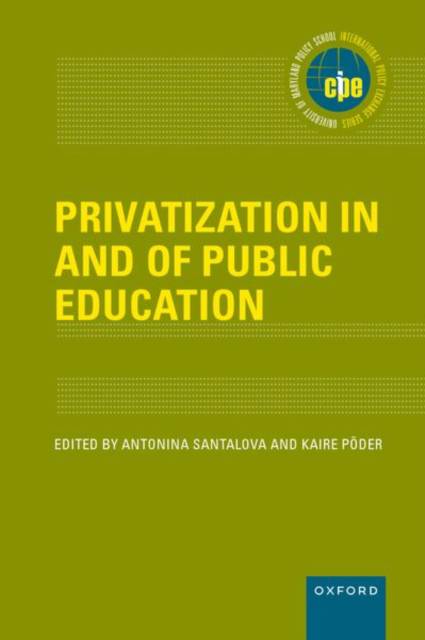
- Afhalen na 1 uur in een winkel met voorraad
- Gratis thuislevering in België vanaf € 30
- Ruim aanbod met 7 miljoen producten
- Afhalen na 1 uur in een winkel met voorraad
- Gratis thuislevering in België vanaf € 30
- Ruim aanbod met 7 miljoen producten
Zoeken
Privatization in and of Public Education
€ 90,45
+ 180 punten
Omschrijving
Privatization of education has become a prevalent global trend, representing a significant shift from viewing education as a public good to considering it as a private commodity. This transformation is closely tied to the modernization of the state under the principles of neoliberalism. A comprehensive analysis, as presented in this book using Ball and Youdell's framework, sheds light on the diverse patterns of privatization in education, categorizing them into two types: exogenous and endogenous. The term "exogenous" refers to policies that grant the private sector increased rights and authority to deliver education services. On the other hand, "endogenous" pertains to policies aimed at making public schools operate more like businesses. This paradigm shift encompasses various elements, including parental school choice, inter-school competition, accountability to parents, and increased autonomy for schools. Still, the book shows that advantages of education privatization are evident, such as heightened efficiency and the ability to cater to the diverse needs of the public schooling system. However, it is crucial to recognize that these benefits come with an inadequately addressed trade-off between efficiency and equity or inclusion. This trade-off stands as the most pressing contemporary challenge of education privatization, affecting various contexts and cases explored within the book. Prominent researchers in the field present a multi-faceted view of the forms and consequences of education privatization. Privatization in and of Public Education encompasses a wide range of countries and regions, including both developed and developing nations, offering valuable case studies that illustrate how privatization is unfolding across the globe. By examining the driving factors behind education privatization, such as economic, political, and social influences, the authors provide a comprehensive understanding of this global phenomenon.
Specificaties
Betrokkenen
- Uitgeverij:
Inhoud
- Aantal bladzijden:
- 352
- Taal:
- Engels
- Reeks:
Eigenschappen
- Productcode (EAN):
- 9780197673508
- Verschijningsdatum:
- 22/03/2024
- Uitvoering:
- Hardcover
- Formaat:
- Genaaid
- Afmetingen:
- 150 mm x 224 mm
- Gewicht:
- 612 g

Alleen bij Standaard Boekhandel
+ 180 punten op je klantenkaart van Standaard Boekhandel
Beoordelingen
We publiceren alleen reviews die voldoen aan de voorwaarden voor reviews. Bekijk onze voorwaarden voor reviews.










